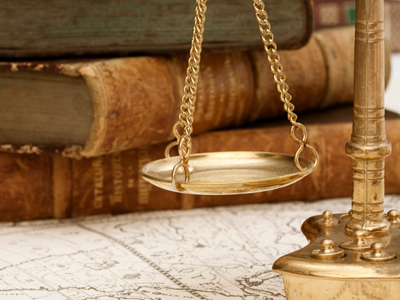

Democracy in Islam
Democracy in Islam focuses on government and rulers.
Islam is a “total way of life". It has provided guidance in every sphere of life, from individual cleanliness, rules of trade, to the structure and politics of the society. Islam can never be separated from social, political, or economic life, since religion provides moral guidance for every action that a person takes.
Muslims have a right to appoint their rulers, hold them accountable and, when need be, to remove them from office. Islam does not, however, empower the system of government with the right to absolve or change the legislation of the religion. What this means is that the people or their elected officials do not have a right to make permissible what God has forbidden, or to declare forbidden what God has made permissible.
The religious harmony, freedom and tolerance which Islam lays down could be best understood from the verses which I have quoted above. It is mentioned in the Quran “..To you be your religion, to me be mine.” (Quran 109:6)
Allah, the Exalted mentions in the Quran, “Let there be no compulsion in religion: Truth stands out clear from error” (Quran 2:256)
Allah, the Exalted mentions in the Quran, “Let there be no compulsion in religion: Truth stands out clear from error” (Quran 2:256)
The first Article of the constitution laid down by the Prophet Muhammad (PBUH) for the inhabitants of Madinah, the Muslims as well as those who had entered the pact from the Jews, Christians and idolaters, were “one nation to the exclusion of all others". All were considered members and citizens of Medina society regardless of religion, race or ancestry.
The lives of the practitioners of other religions in Muslim society were also given protective status. The Prophet said: “Whoever kills a person who has a truce with the Muslims will never smell the fragrance of Paradise.” (Saheeh Muslim)
However, Islam permits what is prohibited as a temporary measure, for example, consuming pork is prohibited in Islam, however if one is in a state where he has to consume pork to live, he/she can consume it for that time being and save his/her life. Islam is a very flexible religion and Allah mentions in the Quran: “Allah intends for you ease, and He does not want for you difficulty..” (Quran 2:185)
An Islamic society can legislate any law for improving and uplifting life, as long as they are not in contradiction to the law ordained by Allah
Islamically, Sharee‘ah refers to the sum total of Islamic laws which were revealed to Prophet Muhammad (PBUH) and recorded in the Quran as well as deducible from the Prophet’s divinely guided lifestyle called the sunnah
Maslaha is one of the Islamic concepts which is used to uphold the public interest
Allah, the Exalted mentions in the Quran, “O you who believe, be upright for God, and (be) bearers of witness with justice!...” (Quran 5:8)
Therefore, one may conclude that justice is an obligation of Islam and injustice is forbidden. The Islamic standards of justice transcend considerations of race, religion, colour and creed, as Muslims are commanded to be just to their friends and foes alike, and to be just at all levels. As the Quran mentions: “O you who believe! Stand out firmly for justice, as witnesses to Allah, even if it be against yourselves, your parents and your relatives, or whether it is against the rich or the poor...” (Quran 4:135)
“Let not the hatred of a people swerve you away from justice. Be just, for this is closest to righteousness…” (Quran 5:8)
Ready for more?
not all...
quizzers. Try to win a coveted spot on our Hall of Fame Page.






